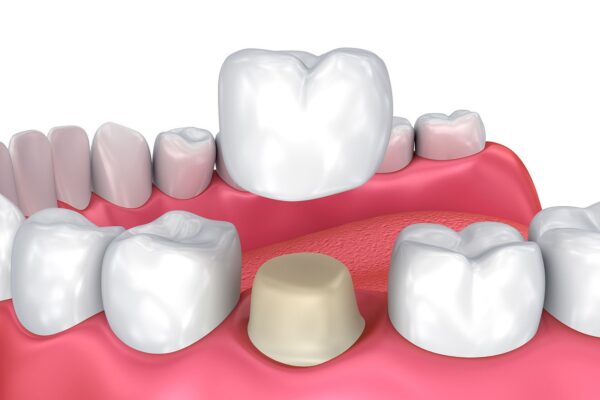Individuals with a weakened immune system tend to have a higher probability of infections and other diseases. The immune system includes antibodies, white blood cells, lymph nodes, and others, which fight foreign bodies in the system. When your immune system gets weakened, these parts do not function effectively.
Do you have a weakened immune system?
Table of Contents
An individual does not have a weakened immune system because he gets an infection. An excellent immune system does not indicate complete disease-free life. However, how often do you get infections? How long does that infection take to cure completely? Some people tend to have chronic infections, which is a clear sign of an ineffective immune system. If you experience more than two common cold episodes every year, or frequent cold sores, you might have an immunity problem. Any recurring infection or prolonged swollen lymph nodes are indicators of a weakened immune system.
Reasons for a weakened immune system
The reasons for an individual to have a weakened immune system are wide and interlinked. Malnutrition is a leading cause of lack of immunity. Some might have an inefficient immune system since birth. There are also a few environmental factors that affect immunity. In some cases, an underlying major medical conditions like cancer, HIV, viral hepatitis, and others can cause reduced immunity. The external factors affecting your immune system are lack of hygiene, pollutants, and contaminated food or water. Among these, the most over-looked cause is stress.
Stress and a weakened immune system
The link between a weakened immune system and stress is not a novel discovery. In 1980, psychologists correlated the connection between stress and frequency of infection. Even a simple level of stress can alter the functioning of the immune system for a short period. In the case of chronic stress, the immune system goes haywire. Stress due to mental conditions like depression can weaken the lymphocyte-T cells, rendering them useless.
High cortisol level causes weakened immune system
When you are experiencing stress, cortisol level increases in the body. Cortisol helps boost immunity to reducing inflammation, and a high level of cortisol in the body is not a negative effect. However, during chronic stress, the cortisol level stays higher in the body for long. Cortisol sends signals to the immune system to fight foreign particles. Since cortisol is always higher, the brain loses sensitivity to cortisol. Thus, when there is indeed an infection, the immune system does not respond.
Stress deactivates lymphocytes
Lymphocytes are the white blood cells that help to protect your body from infection. Stress can decrease the secretion of lymphocytes. When there are lesser lymphocytes, your immune system’s ability goes down, making it prone to any infection. It is a misconception that sleep deprivation reduces lymphocytes level. However, sleep deprivation leads to increased cytokines, which fight inflammation or infection. Chronic insomnia can lead to a prolonged spike in cytokine level, thereby making the body lose sensitivity.
Prolonged inflammation due to stress
Stress can cause depression, anxiety, and other problems. These medical conditions increase inflammation in the body. Thus, the body has to fight inflammation constantly. Over time, the immune system weakens and loses its ability to fight infection or inflammation. Some of the chronic inflammation disorders caused by stress are psoriasis, arthritis, inflammatory bowel disease, lupus, and fibromyalgia. Prolonged stress can also lead to type 2 diabetes, heart diseases, and more.
Unhealthy ways to resort stress can weaken immunity
When an individual is in a stressed state, he tends to overcome it through numerous methods. The recommended practices include meditation, good sleep, exercise, and an effective way of dealing with the root problem. However, people take up unhealthy habits like consuming too much caffeine, alcohol, or even drugs. Some choose smoking and overeating comfort food. The most common reaction to stress is giving up on social activities. The lack of social support will add to the stress, thereby decreasing immunity. Alcohol, drugs, and too much caffeine can lead to other medical and personal problems, adding to the stress.
Solution to weakened immune system
The first step is to understand the cause of the lack of immunity. Any individual with responsibilities can get stressful. However, a weak immune system does not always indicate stress. Talk to your doctor about your current condition, history of illness, and any medications you are taking. Your doctor might recommend certain tests to understand the level of your immunity. In case of any underlying medical conditions, treating them would improve your immunity. In the case of stress-induced immunity, you need to work on your stress levels.
A good diet rich in micro and macronutrients will improve immunity. Vitamin C, selenium, amino acid glutamine, vitamin D, iron, and zinc improve the immune system’s function. There are numerous sources for these nutrients. Thus, a balanced diet will help you get better immunity.
How to deal with stress?
You cannot alter your life to avoid stress. Stress is an integral part of any individual, with no regard to age, occupation, and social status. The main element here is the ways that an individual chooses to deal with stress. It does not help if one tends to bottle it up. One can take up meditation, yoga, exercise, and other activities. Physical activities increase the endorphin level in the body. Endorphin reduces stress, and it also improves immunity by activating white blood cells.
A good diet helps improve nutrients in the body, which enhances mood and improves the immune system’s strength. If you have chronic stress, it is best to talk to a psychiatrist to learn methods to deal with it. The social stigma in visiting a psychiatrist is understandable, but the toll that stress takes on the immune system is too high to ignore.
If you experience a weak immune system, try to alter your lifestyle by adding physical and social activities, a balanced diet, and a good sleep cycle. If there is still no improvement in your immunity level, talk to your doctor.





